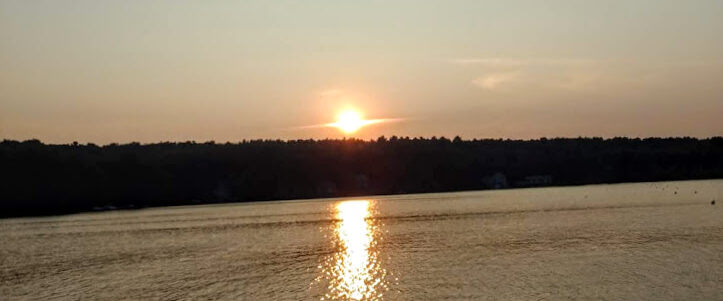After a summer of significant weed growth, we are asking for your help!
In a continued effort to maintain the health and viability of our lake, we are reposting the list from our fall newsletter of the most effective ways we can help protect the lake and potentially prevent further weed growth. We truly appreciate your diligence.
How you can help:
1. Use Phosphorus-Free Fertilizer
The three numbers in fertilizer bags show the N‑P-K nutrient analysis. The middle number is the phosphate (phosphorus) content. A “zero” in the middle means it is phosphorus free. Soils in most parts of Massachusetts already have an adequate amount of phosphorus to grow a healthy lawn. In these instances, adding more phosphorus with fertilizer is not needed and will not benefit your lawn. If you are concerned that your lawn may need phosphorus, you can have your soil tested. Soil testing is available at a reasonable price through the Mass Department of Agriculture.
2. Fertilizing at the right time
• Fall is the time to apply fertilizer for the best results in spring.
• Don’t fertilize before a storm.
• Never apply to frozen ground.
3. Take care of Yard Waste Properly
Never blow or rake leaves, grass clippings, and similar debris directly into the lake because they will use precious oxygen as they decompose.
Keep soil, leaves, and lawn clippings out of the street, ditches, storm drains, and streams by bagging them, composting them, or leaving them right on the lawn as a natural fertilizer. Yard scraps that enter rivers absorb oxygen as they decompose which can strain or kill aquatic life.
4. Pick up pet waste
Pet waste can contain harmful bacteria as well as phosphorus. Use newspaper, bags, or pooper-scoopers to pick up pet waste. Place wrapped pet waste in the trash or unwrapped in a toilet. Never discard pet waste near or in a storm drain or in the lake.
5. Control soil erosion around your house
When left bare, the soil is easily washed away with rain, carrying phosphorus with it. Soil erosion can be prevented by covering exposed soil with vegetation or mulch.
6. Household Cleaners and Other Chemicals
It’s important to dispose of cleaners and chemicals in the proper manner. Read the instructions on the container or contact your local transfer station or waste management district.
*Upcoming Lake Maspenock Weed Advisory Group (a.k.a. Citizens Input Group (CIG) Meeting
On Thursday Oct 27th, CIG will be meeting at 5pm via zoom (link can be found on the town calendar page) to continue their discussion as to which tool will be presented to Conservation Commission to be used in the Spring to manage the weeds.
The LMPA E‑Board
